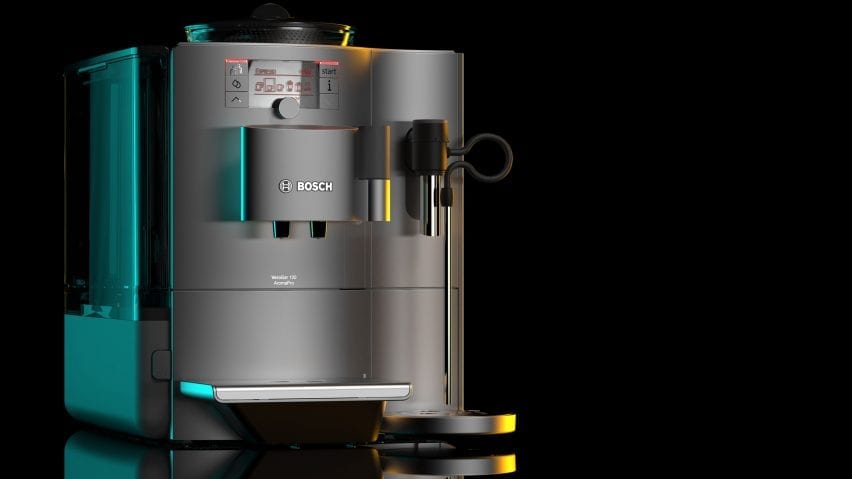Dezeen promotion: the NX Render from Siemens Digital Industries Software allows designers to quickly visualise how products will look and function before they are made.
Siemens designed NX Render to enable designers and engineers to streamline their design process and prevent "massive amounts of money being spent on prototype products that will never see it to market".
According to Siemens, in the traditional visualisation workflow, designers spend a lot of time exporting their 3D data into third-party applications for the rendering process.
When using NX Render, users can create photorealistic renders with one computer model in a single software, removing the need for third-party tools and physical prototypes.
The process can "speed up the time taken to produce your first image by up to 90 per cent," said Siemens.
"Visualization and virtual reality are changing the way we all interact with the physical world through an enhanced digital lens," Siemens said.
"Having the ability to know how something will look and feel before it is actually created is a leap forward for all, especially businesses."
"NX software is a flexible and powerful integrated solution that helps you deliver better products faster and more efficiently," added Siemens.
"NX delivers the next generation of design, simulation, and manufacturing solutions that enable companies to realize the value of the digital twin."
The first step to using the NX software requires setting up a detailed model of the product and a scene in which to place it. At this stage, Siemens encourages referring to real-life versions of similar products to ensure accurate detailing.
Once the 3D model is made, users can then apply photo-real materials finishes to individual components and surfaces or entire bodies.
Once the model is covered, tweaks can be made to the materials and decals – digital stickers for logo or details – can be applied to the surfaces to help bring the scene to life.
Lighting can also be manually adjusted to create more realistic images, or altered using built-in "system scenes" that emulate lighting conditions of specific environments.
"Lighting in NX Render is physically-based – meaning the virtual lights and environments behave in the same way lights do in the real world," explained the brand.
Alternatively, lighting conditions can be set using "high dynamic range imagery" (HDRI), which works similarly to system scenes but offers a wider range of dark and light shades.
"HDRI's can add a level of realism that a system scene can't achieve but may take longer to configure," Siemens explained.
To generate the final high-quality renders from the 3D model, users can place a camera within the scene. The placement and lens size of this camera can be altered, allowing users to test angles while also helping them to identify where amendments may be needed.
A "field of view" tool has also been incorporated, which Siemens said generates renders that replicate how the human eye interprets real-life scenes. This enables designers and engineers to take virtual 3D photographs of products before they are made.
"This technique considers peripheral vision and the real-life parameters that happen around us subconsciously," the company explained.
At this final stage, the software guides users through any last-minute tweaks that may be needed before processing. The resolution quality and style of the final render can be adjusted depending on its desired purpose, such as a quick review with colleagues to final presentations.
To find out more about NX Render, start a free trial or watch Siemen's webinar, visit its website.
Partnership content
This article was written by Dezeen for Siemens as part of a partnership. Find out more about Dezeen partnership content here.

